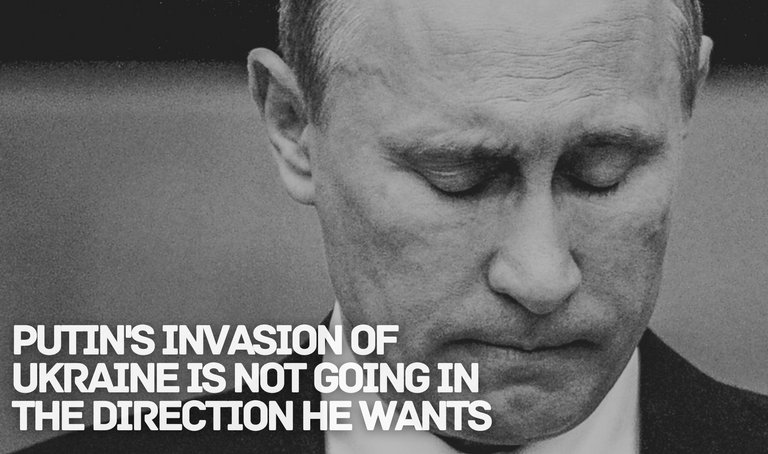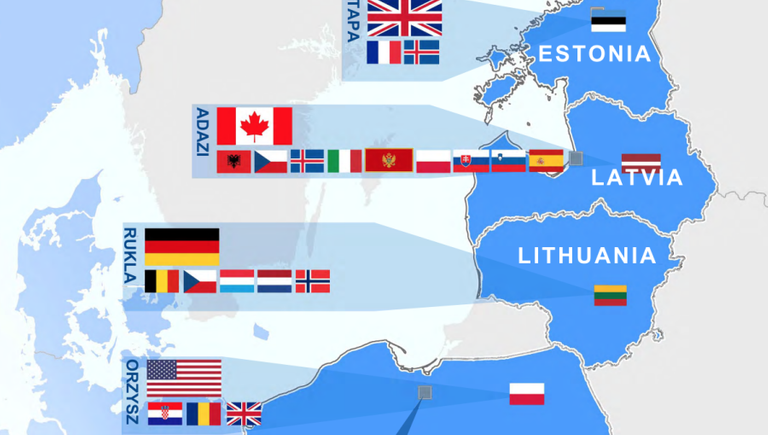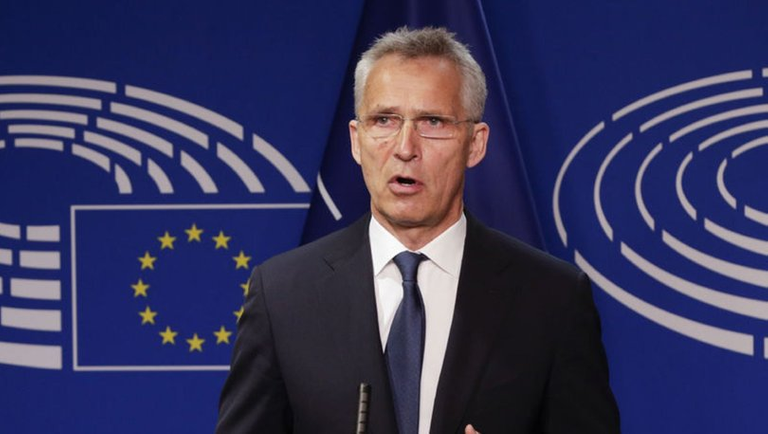
If you take a look at all of the news about the war in Ukraine, there tends to be a reoccurring theme about how the war has seemingly backfired for Putin. Be it the initial failure to capture Ukraine as swiftly as he first envisioned or pushing Finland and Sweden into Nato, things haven't gone exactly to plan for Putin and it seems that things are getting worse with the entire Nato strategy now shifting against Russia from a more laid-back approach to having hundreds of thousands of troops on high alert right at his border. The question is, though, with Nato changing their strategy, is this more evidence of the war backfiring for Putin or could these changes actually end up emboldening him?
Before delving into Nato's new strategy, it's probably best to turn back the clock, set the scene and explain Nato's current strategy. Since Russia's annexation of Crimea back in 2014, Nato has based its defense strategy on a tripwire system and a doctrine of defense by punishment. Under the current system, NATO's eastern flank, the likes of Estonia, Latvia, and Lithuania, are only protected by quite a small number of NATO forces. In fact, it's so limited that the alliance actively expects them to be overrun and destroyed if Russia ever were to invade. The destruction of these Nato forces would act as a tripwire, raising the alarm and allowing for the triggering of article 5. Nato's founding treaty says an attack on one country is an attack on all. While NATO might not have much of a force on the border, if Russia were to attack them, it would commit the entire alliance to the war, escalating the situation almost immediately.

The problem was that this system wasn't exactly universally liked. Ultimately, under the tripwire system, those on the eastern flank of Nato would be invaded and effectively allowed to fall to Russian forces at the beginning of any conflict. NATO would then plan to properly fight back and liberate the countries within about 180 days, but essentially, Lithuania, Estonia, and Latvia would all be allowed to fall to Russia on the promise that NATO would be coming back to rescue them, something which made some in the country pretty nervous. Estonia's prime minister broke the unspoken taboo last week by raising the tripwire system in a meeting. Highlighting that the tripwire would mean quote "a complete destruction of our country, our culture, our people, our nation, concluding that it was no longer an appropriate policy given the state of the current conflict". The prime minister also mentioned conversations that she'd had with NATO's troops in Estonia, who were apparently quoted "not fond of the idea that they were supposed to die" and well, that seems fair enough to me.
Now, we should say here that the tripwire has come under some criticism before. In fact, back in 2016, a RAND corporation report based on a series of war games concluded that Nato forces currently in place in the capitals of Estonia and Latvia could be reached by Russian forces within as little as 60 hours, leaving Nato with a limited number of options. The point we're trying to make here is that the eastern flank countries have been aware of the flaws in the tripwire system for some time, but the war in Ukraine has obviously created a new sense of urgency. Putin's invasion has reinvigorated the European security order and, as we mentioned at the top of the article, both Finland and Sweden, otherwise doggedly neutral countries, have recently applied to join Nato. Denmark also abandoned their opt-out from the EU's common defense and security policy, marking just the second time that an EU member state has willingly forgone an opt-out that they fought so hard to obtain.
At the same time, the eastern flank countries have become increasingly willing to break the taboo prohibiting open criticism of the tripwire system, with many of them expressing their understandable anxieties about the status quo, and well, it looks like the rest of Nato listened. With the threat of an actual invasion greater than ever and the taboo surrounding the tripwire system finally lifted over the weekend, there were reports that Nato had decided to revise its tripwire policy. While the details are yet to be fully fleshed out, Nato is now set to adopt a policy of deterrence by denial rather than the unpopular deterrence by punishment, which effectively required Nato to sacrifice countries on its eastern front. Under the new deterrence by denial policy, the idea is that Russia will literally be prevented from invading, not merely deterred from doing so. The essentially existing Nato deployments on the eastern flank would be vastly expanded, so much so that the troops positioned there aren't merely symbolic, but actually capable of defending against a full-scale invasion from day one.
At a pre-summit press conference, the organization's secretary-general, Jens Stoltenberg, stressed that Nato's new strategic concept reflected a new security reality, ensuring that Russia would be unable to capture the Estonian capital of Talon just as they've not been able to seize the city of Kirkunes in northern Norway or West Berlin during the Cold War. Stoltenberg went on to flesh out the plans for boosting troops on high alert. But what does all of this mean for Putin? Well, it's a mixed bag. While the move is unquestionably bad for Putin in the sense that it does not make any military confrontation with NATO any easier for Russia, it is also good for him in the sense that he can probably use it to justify his anti-NATO narrative.

From well before the invasion of Ukraine, Putin argued that his actions were necessary to rebalance the situation because Nato was, in his view, posing a greater and greater threat to Russia. In part because they were deploying weapons and troops on NATO's border with Russia. While Nato's new policy is clearly a response to Putin's bellicosity in Ukraine, Putin will claim that it supports his thesis that Nato is an aggressive alliance. Whether this convinces the relevant members of the international community is yet to be seen, but you can certainly see how we'll try and spin it in his favor. Ultimately, though, Nato's shifting plans prove that Ukraine is getting unprecedented support from the international community, likely more than Putin ever expected. With the country even penning some new official alliances.
Dear @scientify, we need your help!
The Hivebuzz proposal already got important support from the community. However, it lost its funding a few days ago when the HBD stabilizer proposal rose above it.
May we ask you to support it so our team can continue its work?
You can do it on Peakd, Ecency,
https://peakd.com/me/proposals/199
All votes are helpful and yours will be much appreciated.
Thank you!